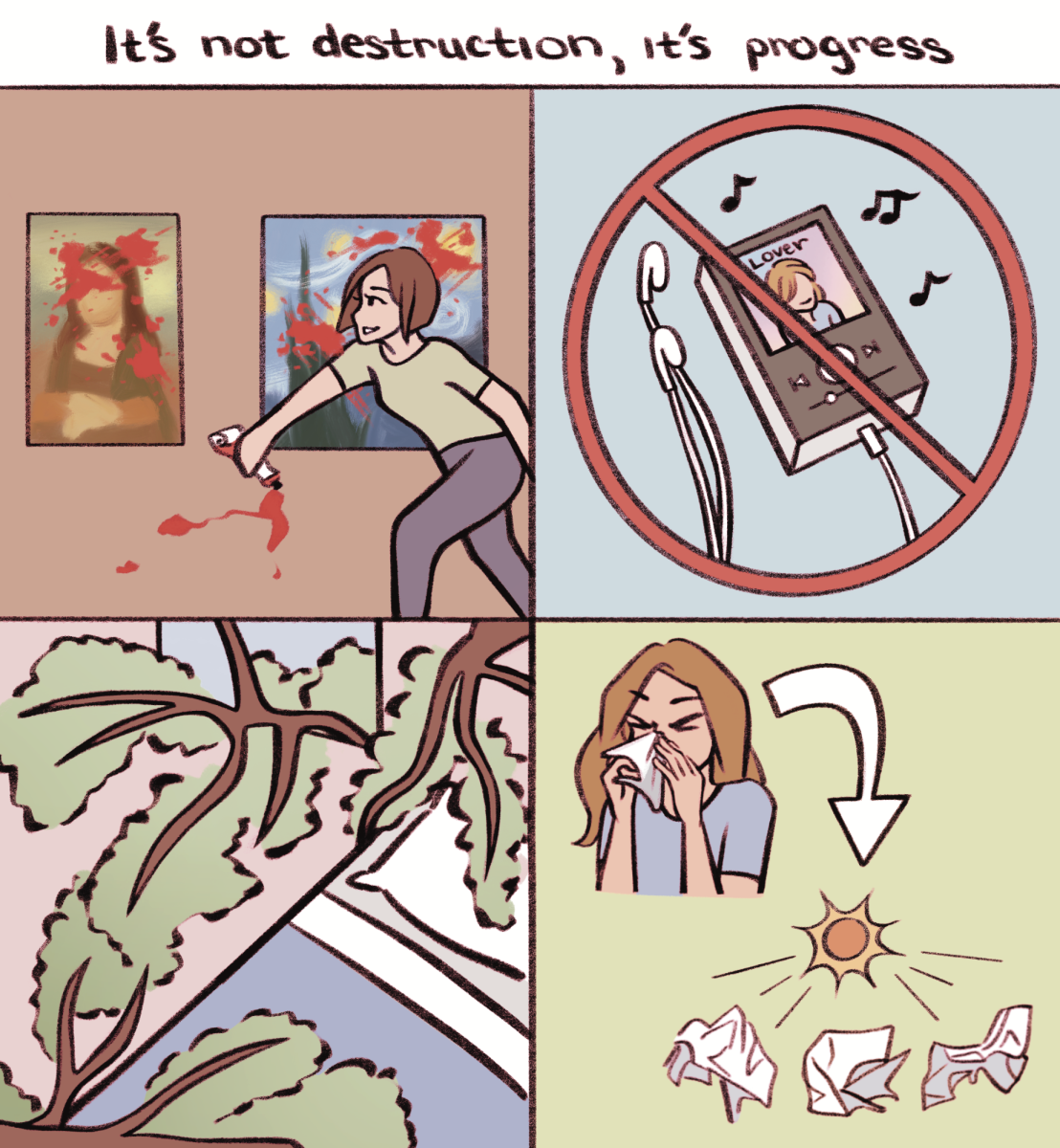Writers’ Note: Earth Day is just around the corner (well, a couple corners), and we strongly encourage everyone to participate. The health of our planet has a direct impact on our lives and future, and we urge people to embrace their civic duty as citizens of the world and forge a path toward a sustainable future. No, this column was not written by Swedish climate activist and extraordinaire Greta Thunburg, but honestly, we’re not far off. In fact, we’ve spent countless hours engineering revolutionary solutions to climate change.
Welcome Aboard
Meet Earth, the perfect candidate for sustainable life. It’s a world of wonders, where oceans hold mysteries deeper than the cosmos and a backdrop painted by Bob Ross provides us with a brilliant blue sky, the Burj Khalifa and endless expanses of land.
But times are changing. The planet is rapidly heating, and islands and low-elevation countries are disappearing into the ocean. Do we truly want a modern-day Atlantis to happen? Again?
How do we go about inducing global cooling? Since current techniques have little effect, common sense suggests that radical efforts are needed to save our Earth from its impending doom.
Fortunately, recent breakthroughs from “scientists” Lucas Yuan and Holden Lee have unearthed the secrets to solving climate change — and it starts with you.
Section I: Trees
What sets Copenhagen, a leader of climate change efforts, apart from a place like Qatar? While Google points to elevation, weather and culture, we think the answer is much simpler: Copenhagen has an abundance of trees.
Trees are nature’s personal janitors. They take in your waste and spit out oxygen. It’s like having an air purifier without paying the electricity bill.
Deforestation has profound consequences for the planet and its inhabitants. Cutting down trees is like cutting your own hair — it’s almost always a bad idea (take notes guys).
Drawing from Copenhagen’s playbook, we first recommend planting trees. It’s important to keep in mind that reforestation isn’t just about planting trees –– it’s also about sending a message. So be bold with your planting! Plant them in your car! Plant them on your roof!
Also, rather paradoxically, we should also be using paper straws instead of plastic ones.
While paper straws are made from cutting down trees, using them feels like you’re making a difference.
Whenever the straw gets too soggy, just make sure to rip the top off so you’re left with a fresh straw.
Finally, to mitigate the destruction of trees, it is imperative society understands the importance of reusability. Please try to reuse your toilet paper and tissues as much as possible to avoid single-use. Leaving them out to dry seems to work best because sunlight is the best disinfectant.
Section II: Minimizing the carbon footprint
Each year, oil and natural gas companies emit millions of tonnes of carbon dioxide into the air.
These greenhouse emissions contribute to ocean acidification and rising sea temperatures, which destroy marine ecosystems. Emissions also have negative impacts on land, as natural disasters, such as wildfires, only become more frequent.
But while it’s really not your fault that these oil and gas companies are destroying our planet, it certainly is your responsibility to act.
To really show your dedication against this corrupt system, you should take action.
We highly recommend throwing tomato soup on a Van Gogh painting because the best way to stop Big Oil is to first destroy 19th-century oil paintings.
Second, you must also stop listening to Taylor Swift songs. Not only will doing so improve your mental health because her songs are breeding grounds for migraines, but you will also show your solidarity with our local team who was sadly beaten by Taylor (Oh, and the Chiefs).
Most importantly, we urge you to make the eco-friendly decision to not fly around the world in a private jet and emit 138 tons of CO2 in three months to see your partner.
Closing Thoughts
Dear readers, let us raise a toast to Earth. We know that saving the polar bears might be a tricky feat, but it’s not impossible. Remember: change is certain, but progress is only made if you embrace your civic duty to preserve the world we call home.



